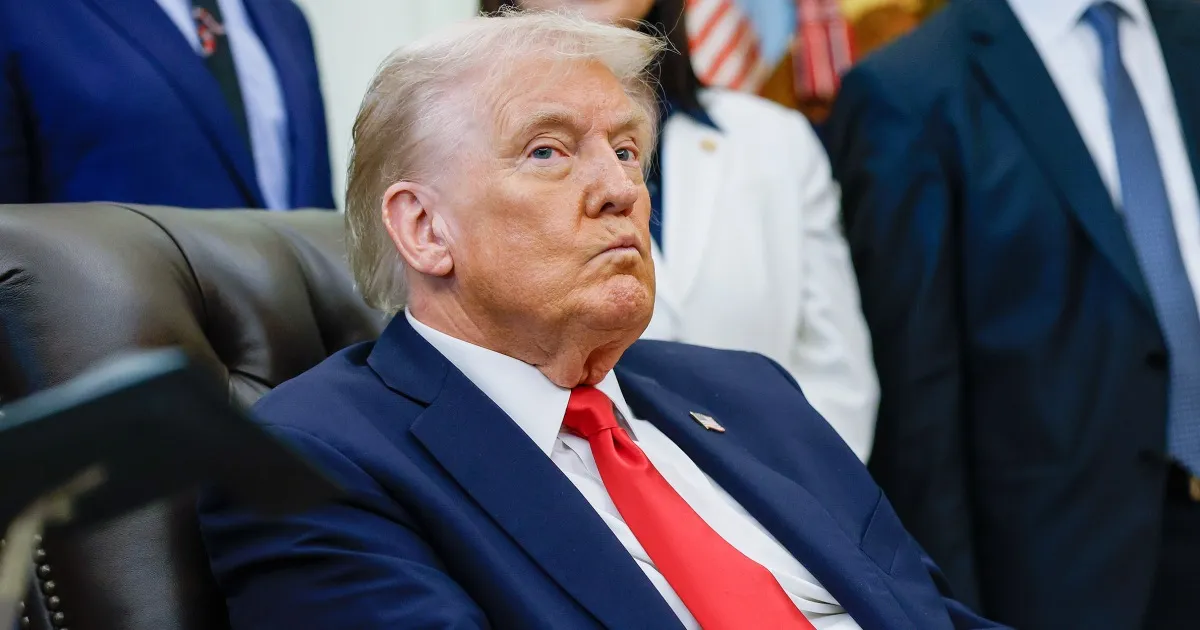
On Thursday, President Donald Trump announced that he is canceling plans to deploy federal troops to San Francisco following discussions with the city's mayor and considerable pushback from the tech industry. In a post, Trump stated, “The Federal Government was preparing to ‘surge’ San Francisco, California, on Saturday. However, friends in the area reached out to request that I hold off on this action, noting that Mayor Daniel Lurie was making significant progress.”
Among those who urged Trump to reconsider the deployment of the National Guard were influential tech executives, including Jensen Huang, CEO of Nvidia, and Marc Benioff, CEO of Salesforce. Trump emphasized that these leaders believe in the potential for San Francisco's future, stating, “Great individuals like Jensen Huang and Marc Benioff have communicated that they want to give San Francisco a ‘shot.’ Therefore, we will not surge San Francisco on Saturday.”
In a separate statement, Mayor Lurie confirmed his conversation with Trump, expressing optimism about the city’s trajectory. He asserted, “San Francisco is on the rise,” while emphasizing the importance of local law enforcement. Lurie added, “We need cooperation from federal agencies like the FBI, DEA, and ATF to tackle drug-related issues, but having military presence in our city could hinder our recovery efforts.”
Mayor Lurie acknowledged the federal government’s support while highlighting San Francisco’s role as a global technology hub. “When San Francisco thrives, our country thrives,” he remarked.
Despite earlier support for federal intervention, Marc Benioff shifted his stance this week. He initially indicated that he would back Trump's decision to send federal troops due to a perceived shortage of police. However, he later clarified his position on X, stating, “I do not believe the National Guard is needed to address safety in San Francisco. I apologize for any concern my earlier comment may have caused.”
Benioff, known for his progressive stance and philanthropic efforts, has seen his views evolve over recent years. He was instrumental in advocating for a business tax aimed at combating homelessness in San Francisco.
Other tech leaders, such as Garry Tan, CEO of the startup incubator Y Combinator, also expressed their opposition to the troop deployment. Tan tweeted, “SF is on the path to resurgence, and there is much work to be done. Mayor Lurie and DA Jenkins are dedicated to this effort. Let them take the lead.”
Mayor Lurie, a Democrat elected last year, has garnered support from various tech executives. District Attorney Brooke Jenkins, who succeeded progressive prosecutor Chesa Boudin, was appointed following a voter recall.
During a press briefing, White House press secretary Karoline Leavitt emphasized the president's willingness to collaborate with leaders across the political spectrum to enhance public safety. “The president is genuinely interested in working to clean up America’s cities. He heard the mayor’s commitment to improving conditions in San Francisco,” Leavitt stated.
In a recent statement aboard Air Force One, Trump mentioned, “We will enter San Francisco at some point to help restore its greatness. A city plagued by crime cannot reach its full potential.” He further hinted at the potential use of the Insurrection Act to justify troop deployment, indicating a readiness to act if necessary.
Trump's plans faced significant backlash from Democratic leaders in California. Governor Gavin Newsom and Attorney General Rob Bonta threatened legal action against the federal government, arguing that deploying troops without justification undermines state sovereignty and the rule of law. “California will always defend our Constitution and values against authoritarian overreach,” Newsom declared.
A spokesperson for Newsom later remarked that Trump had “listened to reason” regarding the troop deployment. They stressed the importance of preserving the progress made in the Bay Area, asserting that any federal intervention could jeopardize local achievements.
This recent episode is not the first instance of tension between the Trump administration and California regarding troop deployments. The administration is currently involved in a legal dispute over the deployment of National Guard troops to Los Angeles earlier this year. A federal judge ruled that Trump's mobilization of troops was unauthorized, and a three-judge panel expressed skepticism about the president's authority to deploy troops without oversight.
As the situation continues to evolve, it remains clear that the dynamics between federal and state authorities, particularly in the context of public safety and local governance, are complex and contentious.